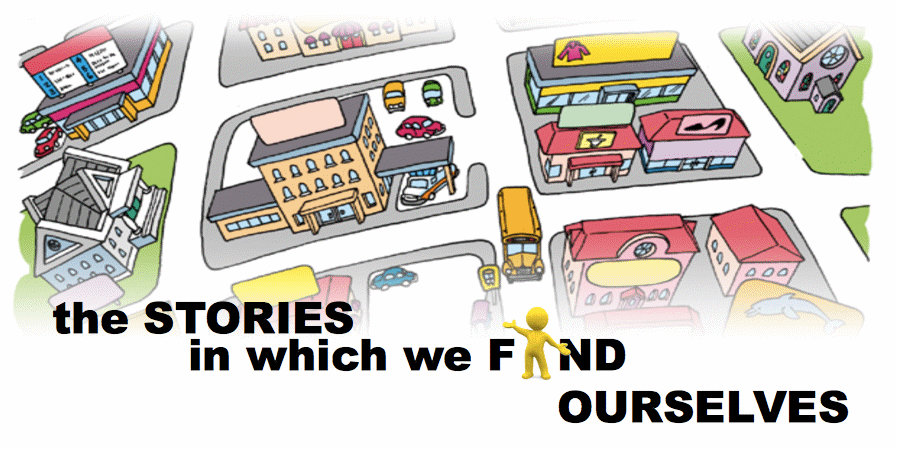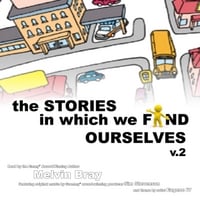Being Human
(from Genesis 2—a story of creation)![]()
Download a dramatic reading of "Being Human" complete with sound effects and musical score!
In the second version of the creation myth from Genesis, instead of both being created at the same time, man is created first without woman. The story goes that once Elohim had made man, he said to him, "Now that you're here, we have planted this garden for you, called Eden. It is your home. 'You may freely eat of every tree of the garden; but of the tree of the knowledge of good and evil you shall not eat, for in the day that you eat of it you shall die.'"
Now, this may sound strange at first. In the mist of so much vibrant, luscious life, why would God need to bring up death? Well, the reality is that all gardens have limits, and like any living system, if overtaxed, they can be depleted to the point of no return, and the land and the people and creatures dependent on them will die. This was likely a lesson the Hebrews had learned the hard way. Thus, it was important to remember that though there was plenty for everyone it would only remain so if everyone only took enough to meet his or her needs and not too much. In this sense, the creation accounts may be the first ecological cautionary tales. If nothing else, they are definitely tales advocating moderation.
Elohim wasn't done. He looked at the man and said, "'It is not good that the man should be alone.' Let's make him a partner to help him." So, as what may come off initially as a cruel prank, Elohim now forms the animals from the dust of the ground, and brings them to the man as if to say, "Pick a helper." But that wasn't what it was. Elohim told the man to name the animals. So the man looked about for a while. There were so many different types of animals, some walking, some swimming, some flying, some climbing. There was so much commotion that the man didn't know which one to start with.
Suddenly one particularly friendly animal ran up to the man. It was about thigh high, covered in fur and it wagged not only its tail, but its whole body. It stood still for a moment, ran around in a tight circle then stopped again directly in front of the man. It stood there fidgeting with it's tongue hanging from its mouth, until it emitted the oddest sound, "Arf! Arf!"
In awe, the man stood, tilting his head from side to side as if trying to consider the odd creature from different angles. Finally his lips begin to fidget as if trying to accomplish something they had never done before. He looked as if he had almost figured it out, but then paused for a moment to reconsider. Then working up the gumption again, his brow furled in concentration as he pointed his finger at the animal, formed his mouth and uttered, "D- d- d- dog!" in nearly perfect English, right? Of course not! He spoke whatever language people spoke where he was at the time. He wouldn't even have spoken Hebrew, the language of the people who gave us this story.
As I thought about it, I tried to guess what it was that the Hebrew storytellers imagined when they told this story. Perhaps they were making a joke, thinking of how difficult it would have been to name every single different animal. Can you imagine? "Bird, fish, cat, deer, little-furry-hoppy-floppy-eared thing 1, little-furry-hoppy-floppy-eared thing 2... little-furry-hoppy-floppy-eared thing123—dag-rabbit where do these things keep coming from!"
Or imagine if folks were trying to give every animal an actual name, "Alright, so that's Jaya, Kari, Melvin, Evan, Leah, Roger, Jocelyn, Ivan, Leslie and Leroy—did we miss anyone?"
Then it occurred to me that it really doesn't matter what the animals were called way back when because by time the story made it down to you and me, no one could remember what those original names were—which is in and of itself a bit of useful information to hold onto. Like everything else, language evolves. Words pass out of use. How we talk about things today, won't be nearly as appropriate or useful tomorrow. As human beings, we will always be challenged to find new names to better describe the world around us.
(Wow, that's a lot to have to learn. Imagine if humanity had to learn it all in one day! Makes one think learning the importance of such things probably took a good bit of time, trial and error. No wonder the Hebrews finally wrote them down. They're not the types of things you'd want to leave solely to memory—particularly if you can't even remember the name of your favorite pet!)
Finally, in the story Elohim ends his lesson about not being alone by putting the worn out man to sleep. He had worked himself into a tizzy trying to come up with so many different names, and along the way he still hadn't found anyone to partner with. While the man was asleep, Elohim did a little minor surgery. He reached into the man's side and took out a rib. After closing up the spot so as not to leave a scar, Elohim then fashioned the rib into a woman.
When the man woke up and saw the woman lying there, he jumped up and exclaimed, "Wo-man! Where'd she come from?" Elohim replied, "I made her to be a partner for you, from one of your ribs no less."
When the woman woke up and didn't seem anxious to go anywhere, the man fell to his knees and uttered the first recorded prayer of thanksgiving, "Thanks be to God for this 'now bone of my bone and flesh of my flesh.'" And still in the naming mode, he proclaimed, "She shall be called 'Woman' (because, for one, that's all I can say every time I look at her, and too) because she was taken out of man." Then the man grabbed the woman's hand and didn't want to let it go.
And that's how the story goes. Not very cohesive, I know. Kind of a hodgepodge of things. Why pick these particular things to remember? I do not know. I guess they are just as good as any. Maybe they had something to do with some particularities of what was going on in Babylon at the time the story was written down. Whatever the case, if these things have anything to do with being fully human, we'd probably do well remembering them today.










No comments:
Post a Comment